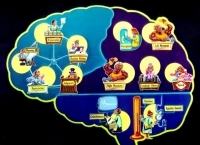
This white paper is the third of three parts on the complex functions of brain, what happens when an injury is acquired and how to care for and manage a life-changing brain injury.
BY LINDA SIMMONS, RN BScN
Consultant and Cost of Future Care Expert, Connect Medical Legal Experts
The prehospital care of a patient with a brain injury has a profound impact on the subsequent course of events and outcomes. Prehospital management refers to the initial resuscitation and interventions that stabilize the patient at the scene of the accident and on route to the hospital. Prehospital management requires timely and effective brain resuscitation, as the brain only has minimal reserves to meet ongoing metabolic needs. If resuscitation is insufficient because of reduced cerebral blood flow (CBF) and decreased oxygen delivery, ischemia and hypoxia develop and can lead to secondary brain injury.







